Child Protection / Safeguarding policy
St Margaret’s Trust SCIO Braemar (SC045945)
Our child protection policy:
This policy applies to all individuals associated with St Margaret’s, including Trustees, staff, contractors and volunteers, or anyone working on behalf of St Margaret’s Braemar.
The purpose of this policy:
• To protect children and young people taking part in our activities or receiving our services
• To provide all associated with St Margaret’s with the principles that guide our approach to child protection. We believe that children and young people indeed any human being should not experience abuse of any kind. We have a particular responsibility to promote and safeguard the welfare of all children and we are committed to practicing in a way that protects them from harm.
Context:
St Margaret’s Braemar principally operates as an exhibition and performance venue. From time to time the charity is involved in commissioning and delivering educational activities, for example arts and crafts or music workshops specifically targeted at children and young people, who may be unaccompanied at the venue.
There are three kinds of events/activities:
1) Those open to adults and children of all ages;
2) Those for children accompanied by a parent or responsible adult/relative;
3) Those for unaccompanied children.
In relation to events open to all ages and those for children accompanied by a parent or relative, children under 18 must be accompanied throughout by an adult over the age of 18.
With regard to events for unaccompanied children, all children under 18 must be registered including their name, age address and the name and contact number for a parent or relative who will be contactable during the event
Legal framework:
The principal pieces of legislation our guidance which has been used to develop this policy includes:
· Getting it right for every child (Scottish policy)
· United Nations Convention on the Rights of the Child (UNCRC)
· Children and Young People (Scotland) Act (2014)
· Protection of Vulnerable Groups (Scotland) Act (2007)
· General Data Protection Regulation (GDPR) (2018)
· Equality Act (2010)
This policy links to other St Margaret’s policies, namely:
· Health and Safety
· Recruitment
· Bullying policy and procedures
· Complaints
· Online safety
We recognise that:
1. The best interests of the child must always be a primary consideration
2. All children and young people should be treated fairly and with dignity and respect
3. All children and young people have the right to protection from all forms of harm, abuse, neglect and exploitation
4. All children and young people have the right to express their views on matters that affect them
Universality of Protection
St Margaret’s recognises that:
· the welfare of the child is paramount
· all children regardless of race, gender, religious belief, disability, age, sexual orientation, or identity have a right to equal protection from harm
· some children may be more vulnerable as a result of their circumstances, previous experiences, communication needs or level of dependency
· it is essential to protect their wellbeing and in so doing it is our duty to report any concerns to the appropriate agency.
What we expect of our people:
a. Adults supervising children at events must never use any form of corporal punishment.
b. In the unusual event of any physical restraint being required, for example to prevent injury to the child or any person or prevent serious damage to property, then the minimum necessary restraint may be used – but for these purposes only.
c. Unacceptable behaviour at an event for unaccompanied children will generally be stopped by separating the children from each other and from the group.
d. In the event of any action being taken with an unaccompanied child the parents will be informed and asked to attend as soon as possible.
e. Bullying of children either by adults or other children is unacceptable.
f. We will seek to ensure that parents are aware that photographs or filming may take place at certain events and that these may be published following the event.
g. Any event involving unsupervised children will include a minimum of two adults.
Reporting Concerns:
· We will take very seriously any allegation of impropriety. Anyone who discovers anything amiss or has concerns should get in touch with the following:
1) Any Trustee present – failing that -
2) Our designated Trustee for child protection (details below) failing that -
3) Chair of the Board of Trustees (details below)
· Any allegation will be appropriately investigated and any necessary action taken following consultation with the Designated Trustee,
We will keep children and young people safe by:
• Having a Designated Trustee for child protection in post – Dr Colin M Hunter
• Implementing our online safety policy
• Taking a safer recruitment approach
• Ensuring our trustees, staff and volunteers who are dealing with events for children and young people receive appropriate child protection training
• Striving to involve children and young people in and planning and delivery of group educational activities
PVG
In the rare event of events/activities being undertaken for children or vulnerable adults by St Margaret’s, we will ensure that an up to date PVG clearance is in place for any volunteer, staff member or individual delivering such an event/activity.
Contact details:
• Designated Trustee for child protection and safeguarding
Dr Colin M Hunter OBE FRCGP
Inver Cottage
Braemar AB35 5WS
07778996018
• Chair of Trustees
Brian Wood
• Child Protection Officer
Aberdeenshire Council,
Gordon House,
Inverurie.
01467 537111
• Out of hours social care
Aberdeenshire Council 03456 08 12 06
• Police
Dial 111
Signed and dated:
Brian Wood
Chair Trustees
St Margaret’s Braemar
Policy review date: May 2024
